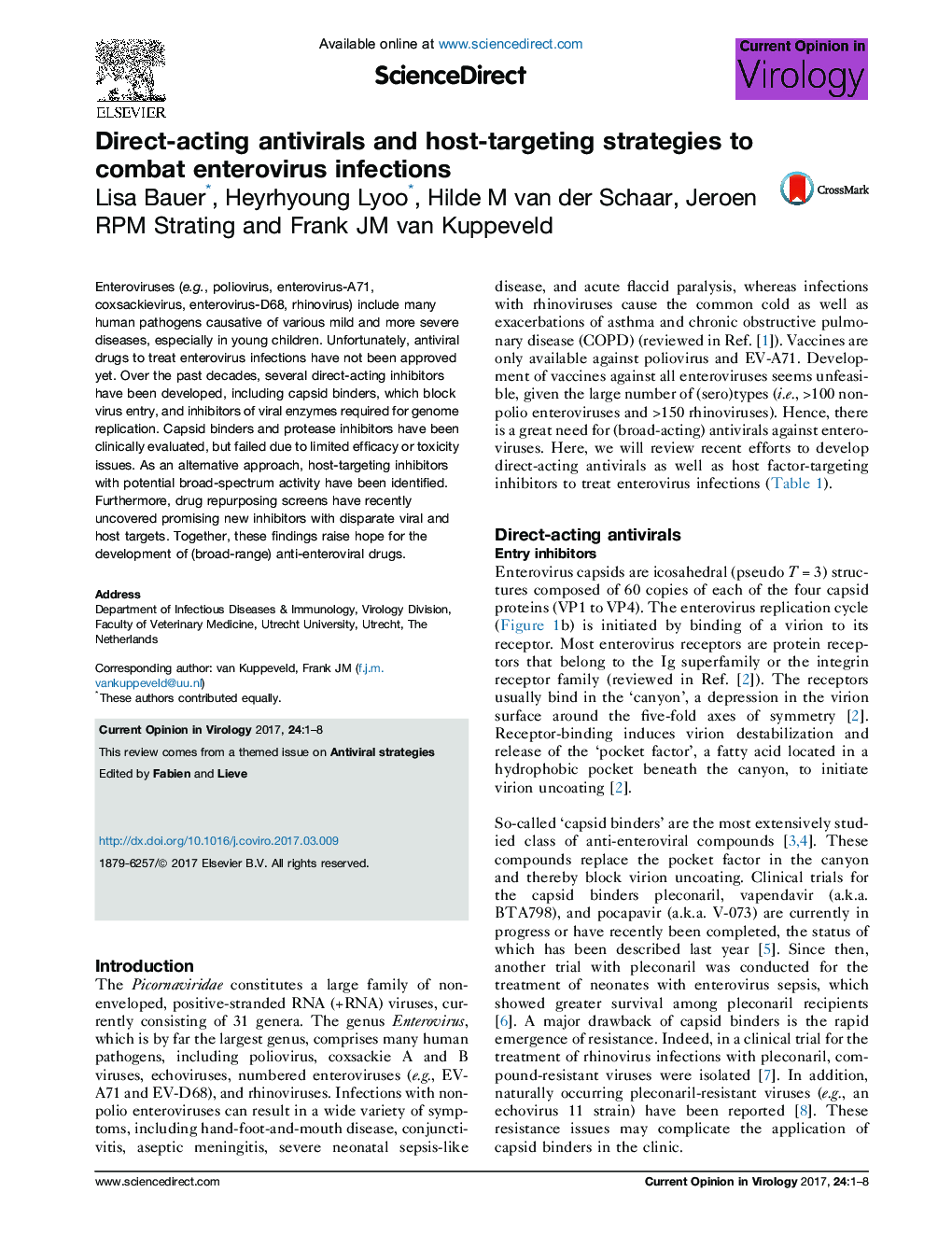| Article ID | Journal | Published Year | Pages | File Type |
|---|---|---|---|---|
| 5546207 | Current Opinion in Virology | 2017 | 8 Pages |
Abstract
Enteroviruses (e.g., poliovirus, enterovirus-A71, coxsackievirus, enterovirus-D68, rhinovirus) include many human pathogens causative of various mild and more severe diseases, especially in young children. Unfortunately, antiviral drugs to treat enterovirus infections have not been approved yet. Over the past decades, several direct-acting inhibitors have been developed, including capsid binders, which block virus entry, and inhibitors of viral enzymes required for genome replication. Capsid binders and protease inhibitors have been clinically evaluated, but failed due to limited efficacy or toxicity issues. As an alternative approach, host-targeting inhibitors with potential broad-spectrum activity have been identified. Furthermore, drug repurposing screens have recently uncovered promising new inhibitors with disparate viral and host targets. Together, these findings raise hope for the development of (broad-range) anti-enteroviral drugs.
Related Topics
Life Sciences
Immunology and Microbiology
Virology
Authors
Lisa Bauer, Heyrhyoung Lyoo, Hilde M van der Schaar, Jeroen RPM Strating, Frank JM van Kuppeveld,
